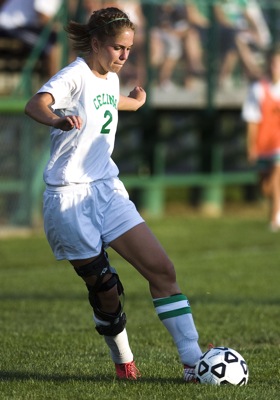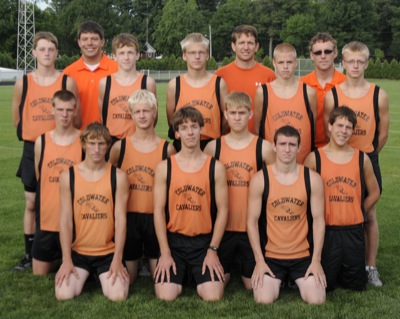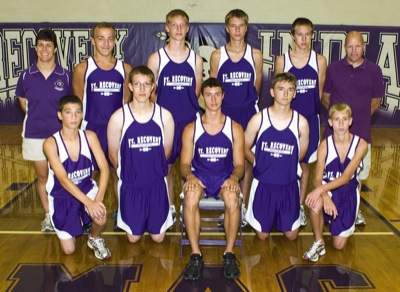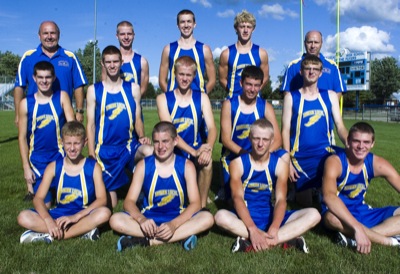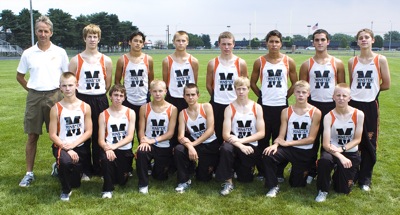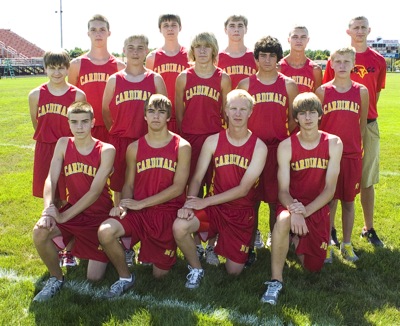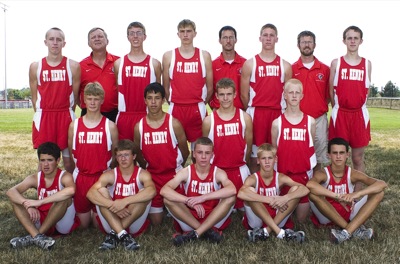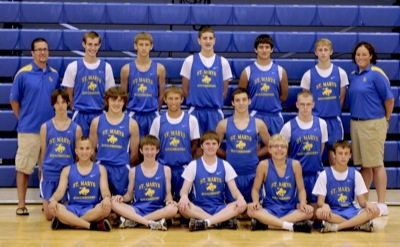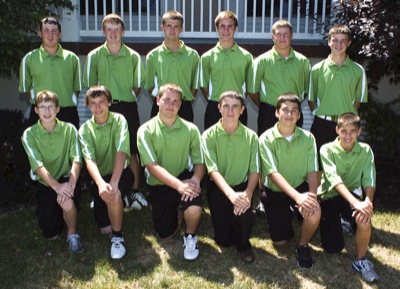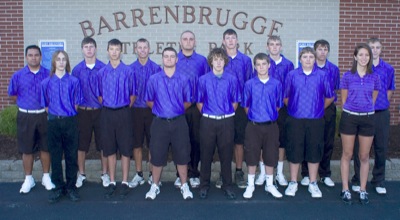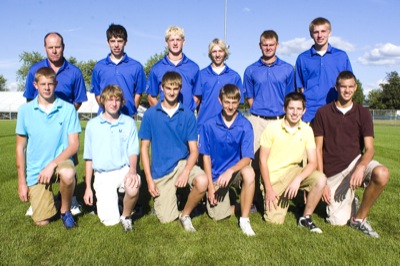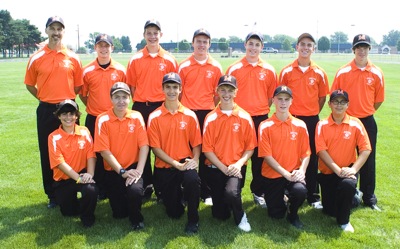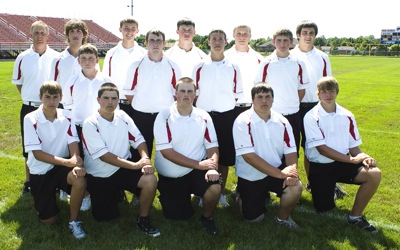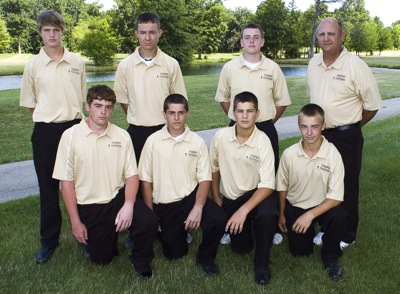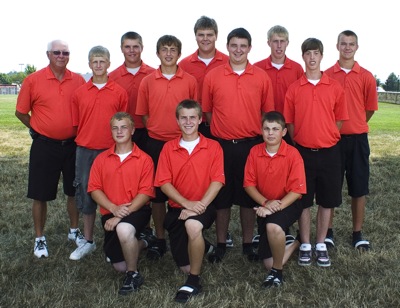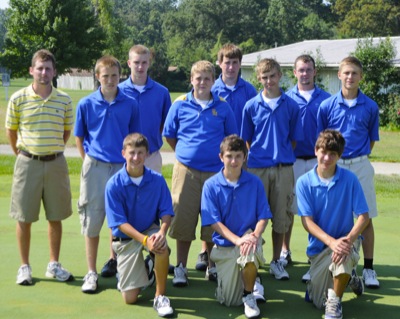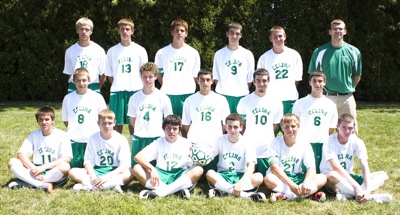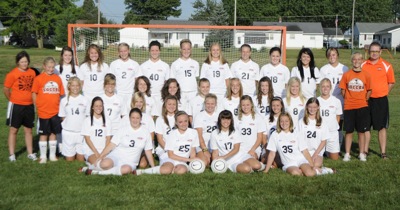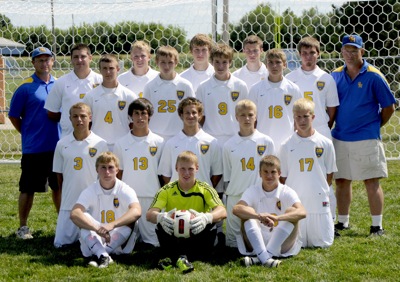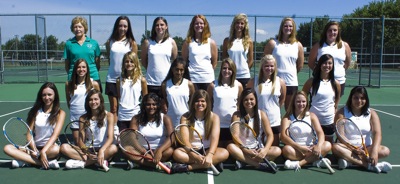Tuesday, August 23rd, 2011
Injured today, pain tomorrow
High school injuries can wreak havoc on bodies years later
By Daily Standard Staff
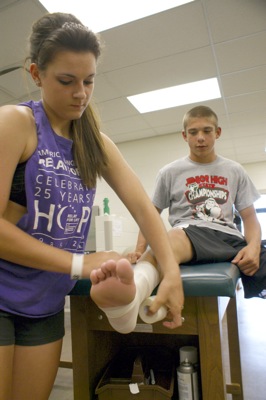
Photo by Shelley Grieshop/The Daily Standard
Celina Bulldog's junior high defensive back Cory Guingrich gets prepped for football practice Monday by trainer Taylor Strable. Many of the injuries athletes suffer during their school years continue to plague them into adulthood.
Editor's note: This is the second story
in a three-part series examining the issue of sports injuries and its impact on area youths.
By SHELLEY GRIESHOP and RYAN HINES
newsdept@dailystandard.com
At 30, Theresa Jenkins walks gingerly as she tries to keep up with her three young children.
The pain that strikes as she kneels to hug her 9-month-old child reminds her of the years she gave her heart and soul to basketball and volleyball.
"I joke that I'm going to need a knee replacement soon," said the 1999 New Bremen High School graduate.
She hopes it's a joke. But after two knee surgeries, she's not so optimistic, she said.
"I have good days and bad days," Jenkins said. "Sometimes my knee just gives out."
She suffered repeated ankle sprains and knee injuries in high school and at times wore a leg brace. During college sports, she tore the rotator cuff in her shoulder and now relies on stretching exercises to keep it loose.
Several athletes told The Daily Standard they don't regret the risk they took playing sports in high school, but they weren't aware how their injuries might affect them later in life.
Shane Stein, a 2010 Fort Recovery grad, said the multiple concussions he suffered during high school football likely are to blame for the periodic memory loss he experiences now in college.
His third and final concussion occurred during the second football game his senior year.
He was devastated when the coach pulled him from the roster.
"It was tough on me. I definitely wasn't going to miss the whole season my senior year," he said, adding he was allowed to play the last three games.
Stein, now a sophomore at the University of Findlay, said he never thought about quitting. The mentality of the team was "fight through it" and "no excuses," he said.
"We were stubborn," said the former outside linebacker. "It was the best time of our lives."
Stein said he has no regrets.
"We just love the game that much," he said.
Jenkins said she never felt pressured by parents, coaches or fans to stay in the game when she was injured. It was a voice from within.
"I'm a very competitive person, and I don't like to lose," she said.
Now, as a second-year volleyball coach at New Bremen schools, she sees the same drive in her athletes and it scares her.
"Kids think they're invincible. They have that Superman complex," she said. "They don't see the effects ... they can't think past right now."
Some parents push their kids too hard to stay in the game even when they're hurting, she said. Add to the scenario a coach who desperately wants to win and the result can be tragic for players, Jenkins said.
"When the coach tells you you're doing really well, you never want to come out," she explained.
One of the athletes on her volleyball team this year is recovering from a stress fracture and is anxious to play. As a former player and now coach, she hopes her advice to "give it time" doesn't fall on deaf ears.
"I keep telling her she better wait; it'll be best in the long run if she gives herself time to heal. But it's hard to get kids to understand," Jenkins said.
That hard-nosed attitude is common among athletes, according to Celina Bulldogs' football coach Jared Rolfes.
"I have coached football in three different states and the same things are happening everywhere," he said. "Some kids try to show they are being tough by playing through an injury. There is a difference between being hurt and being injured and you have to be smart in those situations to not compound an injury."
Players don't want to appear weak or not up to the challenge, Rolfes said.
"Kids think they are showing mental toughness to play through the pain ... Sometimes you feel like you have to chain a player to the bench to keep them off the field," he said.
Rolfes has witnessed many instances when players and their parents appear to be negotiating on how to deal with an injury.
"I have seen kids refuse to go to the doctor, or the only way they will go see a doctor is if the parents agree to let the kid play regardless of what the doctors say," he said. "When an athlete feels that an injury may be minor, they will do what they feel is necessary to get back on the field as quick as possible."
Although head trauma is deemed the most serious of all sports injuries, knees and ankles are most frequently hurt, said Matt Dwenger, director of physical therapy at Joint Township District Memorial Hospital in St. Marys.
He believes sports injuries are treated more appropriately now than in the 1950s and '60s.
"Back then they'd wrap you up and tell you to walk it off," Dwenger said. "Many of those athletes now have arthritis or have to undergo surgery to fix injuries that never healed properly."

